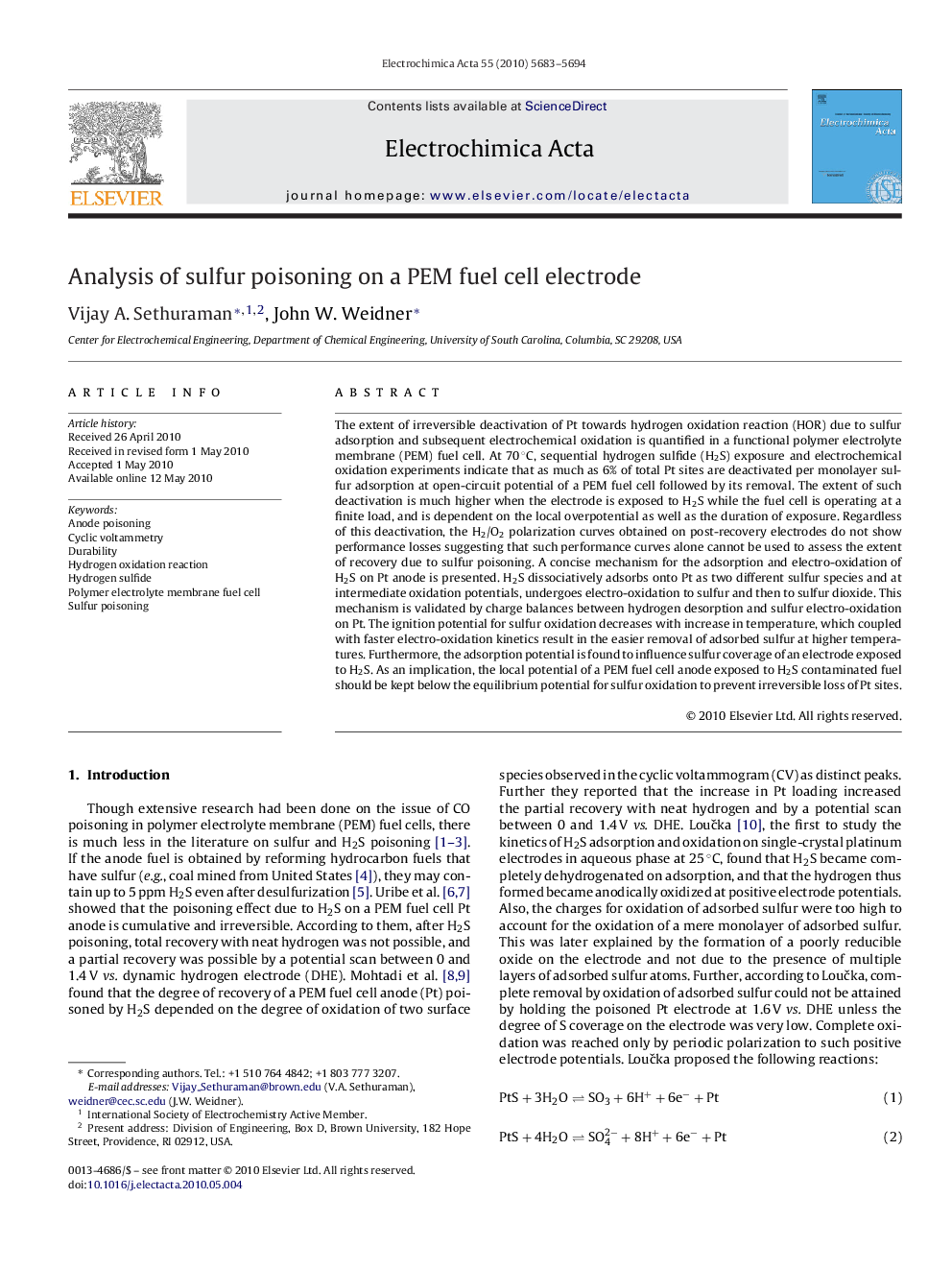| Article ID | Journal | Published Year | Pages | File Type |
|---|---|---|---|---|
| 191114 | Electrochimica Acta | 2010 | 12 Pages |
The extent of irreversible deactivation of Pt towards hydrogen oxidation reaction (HOR) due to sulfur adsorption and subsequent electrochemical oxidation is quantified in a functional polymer electrolyte membrane (PEM) fuel cell. At 70 °C, sequential hydrogen sulfide (H2S) exposure and electrochemical oxidation experiments indicate that as much as 6% of total Pt sites are deactivated per monolayer sulfur adsorption at open-circuit potential of a PEM fuel cell followed by its removal. The extent of such deactivation is much higher when the electrode is exposed to H2S while the fuel cell is operating at a finite load, and is dependent on the local overpotential as well as the duration of exposure. Regardless of this deactivation, the H2/O2 polarization curves obtained on post-recovery electrodes do not show performance losses suggesting that such performance curves alone cannot be used to assess the extent of recovery due to sulfur poisoning. A concise mechanism for the adsorption and electro-oxidation of H2S on Pt anode is presented. H2S dissociatively adsorbs onto Pt as two different sulfur species and at intermediate oxidation potentials, undergoes electro-oxidation to sulfur and then to sulfur dioxide. This mechanism is validated by charge balances between hydrogen desorption and sulfur electro-oxidation on Pt. The ignition potential for sulfur oxidation decreases with increase in temperature, which coupled with faster electro-oxidation kinetics result in the easier removal of adsorbed sulfur at higher temperatures. Furthermore, the adsorption potential is found to influence sulfur coverage of an electrode exposed to H2S. As an implication, the local potential of a PEM fuel cell anode exposed to H2S contaminated fuel should be kept below the equilibrium potential for sulfur oxidation to prevent irreversible loss of Pt sites.
